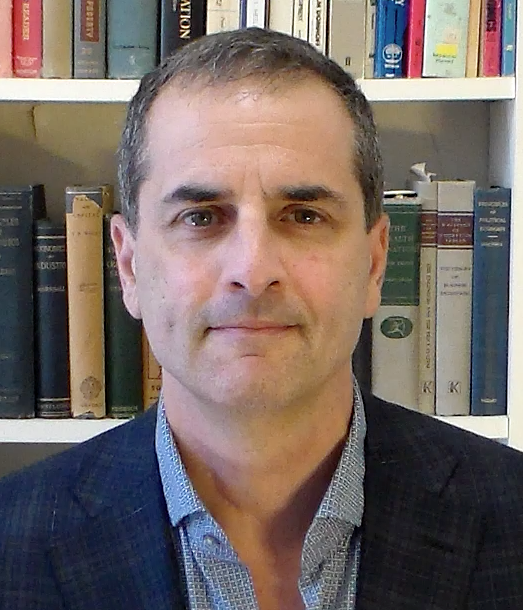Eban Goodstein, Bard College – Educators and Climate Change
 Everyone has a role to play in fighting climate change.
Everyone has a role to play in fighting climate change.
Eban Goodstein, professor of economics at Bard College, explores the role educators can play.
Goodstein is an economist and Director of the Center for Environmental Policy and the MBA in Sustainability at Bard. In recent years, Goodstein has coordinated a series of national educational initiatives on climate change involving over 2500 colleges, universities, high schools and community organizations. He is the author of a college textbook, Economics and the Environment now in its ninth edition; Fighting for Love in the Century of Extinction: How Passion and Politics Can Stop Global Warming; and The Trade-off Myth: Fact and Fiction about Jobs and the Environment. Articles by Goodstein have appeared in among other outlets, The Journal of Environmental Economics and Management, Land Economics, Ecological Economics, and Environmental Management. His research has been featured in The New York Times, Scientific American, Time, Chemical and Engineering News, The Economist, USA Today, and The Chronicle of Higher Education. He serves on the editorial board of Sustainability: The Journal of Record, and was a member of the Board of Directors of the Follett Corporation. He holds a B.A. in Geology from Williams College and a Ph.D. in Economics from the University of Michigan.
Educators and Climate Change
Another summer of record-breaking heatwaves, droughts, fires and floods has shown us how fast climate change impacts are hitting. At the same time, deployment of clean energy solutions like solar and wind are accelerating. As educators, there is nothing more important than engaging students across our campuses in this extraordinary moment in which we are living. Over the last three years, a project I direct at Bard College in New York has been supporting globally coordinated education about the climate crisis. We have engaged hundreds of colleges, universities and high schools– from Malaysia to Minnesota, and from Austria to Alabama– in discussions of climate solutions, across the curriculum. And now, you can get involved. On March 30, 2022, we are organizing a Worldwide Teach-in on Climate and Justice, targeting participation by a million students across the planet.
Our three-hour teach-in model maximizes student involvement through faculty leadership. Participating schools host a series of concurrent panels with climate-concerned faculty from multiple disciplines—arts, literature, science, business, religion, engineering. Faculty are mostly not climate experts; they each talk for five minutes about climate change from their disciplinary perspective, and then help lead discussion. In this way, and following the guide including sample panels on our website, it is easy to get thirty-plus faculty participating. That means hundreds of students at each school engaged in serious dialog about climate solutions and justice.
Humanity is in a race to stop global warming. That is the good news: we haven’t lost yet. Through the Worldwide Teach-in, climate-concerned faculty, staff and students can focus their campuses, communities, and the world, on the critical work we need to do to stabilize the climate, and create a just and prosperous future. Tell every teacher, every student, every community member to join us for one of our information session calls, the first Wednesday of every month.
The Worldwide Teach-in on Climate and Justice is supported by the Open Society University Network.
Read More:
[Bard] – World-Wide Teach-In
Related Posts
-
 Shuang-Ye Wu, University of Dayton – Global Warming and Weather Disasters
Global warming has contributed to a record number of weather and climate disasters. Shuang-Ye
Shuang-Ye Wu, University of Dayton – Global Warming and Weather Disasters
Global warming has contributed to a record number of weather and climate disasters. Shuang-Ye -
 Henry Knight Lozano, University of Exeter – California and Florida: From Climate Paradise to Crisis
Some locales known for their pristine weather may be in for rude awakenings in
Henry Knight Lozano, University of Exeter – California and Florida: From Climate Paradise to Crisis
Some locales known for their pristine weather may be in for rude awakenings in
